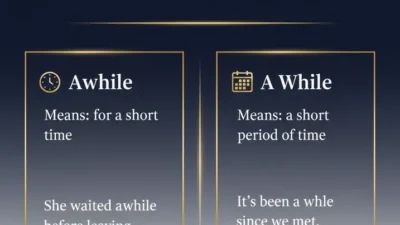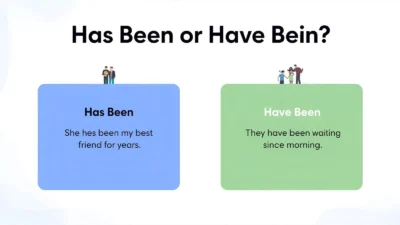Have you ever paused mid-sentence, unsure if you’re using whether or not the right way?
Don’t worry—I’ve been there too. If you’re a student, writer, or even just polishing emails for work, this tiny phrase can feel surprisingly tricky. That’s why I created this guide: Whether or Not: Meaning + Usage + Examples (2025).
I’ll walk you through its meaning, when to use it, and how to avoid the common mistakes that confuse so many people. By the end, everything about this phrase will finally make sense.
Whether or Not – Quick Answer
The correct phrase is “whether or not”.
- ✅ Example: I don’t know whether or not she will come.
- ❌ Wrong: I don’t know wether or not she will come.
“Wether” is a real word, but it means a castrated male sheep—nothing to do with choices or conditions.
The Origin of Whether or Not
- Whether comes from Old English hwæðer, meaning “which of the two.”
- Wether comes from Old English weðer, meaning a male sheep.
- Weather comes from Old English weder, meaning air or sky.
All three sound similar, which is why people still confuse them today. The phrase “whether or not” has been in use since at least the 14th century.
British English vs American English Spelling
Both British and American English use “whether or not”. There is no spelling difference here. However, Americans sometimes shorten it to just “whether,” while British writers often prefer the full phrase.
Comparison Table
| Variation | Meaning | Correct Usage? |
| whether or not | Refers to a male sheep + “or not” | ❌ Incorrect |
| whether or not | Choice/condition expression | ✅ Correct |
| weather or not | Refers to climate (wrong in context) | ❌ Incorrect |
Which Spelling Should You Use?
- If you’re writing in the US: Use “whether or not.”
- If you’re writing in the UK or Commonwealth: Same rule, “whether or not.”
- For global audiences: Stick to “whether or not.”
The rule is universal. No variation exists across English dialects.
Common Mistakes with Whether or Not
- Writing whether or not instead of whether or not.
- Mixing up weather with whether.
- Dropping “or not” in formal contexts where it adds clarity.
- Example: I don’t know whether she will come (correct, but less formal).
- Example: I don’t know whether or not she will come (formal, complete).
- Example: I don’t know whether she will come (correct, but less formal).
Whether or Not in Everyday Examples
- Emails: Please confirm whether or not you can attend.
- News Articles: The court will decide whether or not to proceed with the case.
- Social Media: I can’t tell whether or not this is a joke.
- Formal Writing: The report must indicate whether or not the data supports the claim.
Whether or Not – Google Trends & Usage Data
Google Trends shows that “whether or not” is a frequent misspelling in the US, UK, and India. People type it because it sounds right, but search data confirms that “whether or not” dominates in correct usage.
Keyword Variation Table
| Keyword | Search Intent | Correctness |
| whether or not | Common misspelling | ❌ Wrong |
| whether or not | Standard expression | ✅ Right |
| weather or not | Confusion with climate/weather | ❌ Wrong |
FAQs:
1. Is “whether or not” ever correct?
No. “Wether” means a sheep, not a conditional choice.
2. What does “whether or not” mean?
It means “regardless of the choice” or “if something happens or not.”
3. Can I just use “whether”?
Yes, often. Example: I don’t know whether she’ll come. Both forms are correct.
4. Why do people type “weather”?
Because it sounds identical to “whether” in speech.
5. Is “weather or not” correct?
No, unless you are literally writing about climate. Example: Weather or not, we’ll go to the beach. (playful, not standard).
6. Which is more formal: “whether” or “whether or not”?
“Whether or not” is more formal and complete.
7. How can I remember the difference?
Think: weather = sheep, weather = rain, whether = choice.
Conclusion
The phrase “whether or not” is the only correct spelling when expressing choices, possibilities, or conditions.
The confusion comes from the homophones weather (a sheep) and weather (climate), but those meanings don’t apply here.
Across both British and American English, the rule is the same: always write “whether or not.” It’s clear, professional, and universally accepted. Remember—using the wrong spelling in emails, essays, or reports can look unprofessional.
When in doubt, keep it simple: whether = choice.
So next time, you’ll know exactly whether or not you’re spelling it right.

I’m Emma Collins, a grammar expert and author at Grammarnestly.com. I love helping readers master English with simple, practical grammar guides.
When I’m not writing, I enjoy reading, coffee, and exploring the beauty of language.



